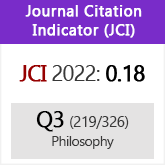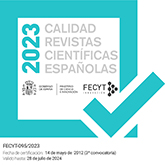El debate sobre el futuro de la especie humana: Habermas critica la eugenesia liberal
DOI:
https://doi.org/10.3989/isegoria.2002.i27.556Abstract
ürgen Habermas’s recent book Die Zukunft der menschlichen Natur. Auf dem Weg zu einer liberalen Eugenik (Suhrkamp Verlag, 2001) is discussed. Particular attention is paid to the central argument concerning the adverse effects the general acceptance of cloning and pre-implantation genetic diagnostics (PGD) would have on the moral and political self-understanding of present and future generations. The argument turns to a critique of Habermas’s central arguments against PGD, and develops at least two arguments that are in harmony with his general defense of procedural democracy and deontological morality. Appeal is made to Peter Singer and John Rawls to develop arguments that do not reject either PGD or genetic engineering and that are nonetheless in full compliance with the spirit of political modernity, as is defended and defined by Habermas. The conclusion calls for less moralizing and more political-economic critique of the biotechnologies unleashed by the information revolution.
Downloads
Download data is not yet available.
Downloads
Published
2002-12-30
How to Cite
Mendieta, E. (2002). El debate sobre el futuro de la especie humana: Habermas critica la eugenesia liberal. Isegoría, (27), 91–114. https://doi.org/10.3989/isegoria.2002.i27.556
Issue
Section
Articles
License
Copyright (c) 2002 Consejo Superior de Investigaciones Científicas (CSIC)

This work is licensed under a Creative Commons Attribution 4.0 International License.
© CSIC. Manuscripts published in both the printed and online versions of this Journal are the property of Consejo Superior de Investigaciones Científicas, and quoting this source is a requirement for any partial or full reproduction.All contents of this electronic edition, except where otherwise noted, are distributed under a “Creative Commons Attribution 4.0 International” (CC BY 4.0) License. You may read here the basic information and the legal text of the license. The indication of the CC BY 4.0 License must be expressly stated in this way when necessary.
Self-archiving in repositories, personal webpages or similar, of any version other than the published by the Editor, is not allowed.














